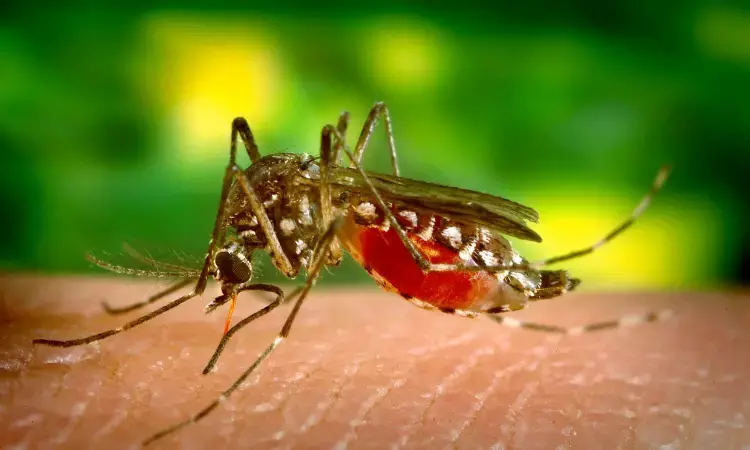- Home
- Medical news & Guidelines
- Anesthesiology
- Cardiology and CTVS
- Critical Care
- Dentistry
- Dermatology
- Diabetes and Endocrinology
- ENT
- Gastroenterology
- Medicine
- Nephrology
- Neurology
- Obstretics-Gynaecology
- Oncology
- Ophthalmology
- Orthopaedics
- Pediatrics-Neonatology
- Psychiatry
- Pulmonology
- Radiology
- Surgery
- Urology
- Laboratory Medicine
- Diet
- Nursing
- Paramedical
- Physiotherapy
- Health news
- Fact Check
- Bone Health Fact Check
- Brain Health Fact Check
- Cancer Related Fact Check
- Child Care Fact Check
- Dental and oral health fact check
- Diabetes and metabolic health fact check
- Diet and Nutrition Fact Check
- Eye and ENT Care Fact Check
- Fitness fact check
- Gut health fact check
- Heart health fact check
- Kidney health fact check
- Medical education fact check
- Men's health fact check
- Respiratory fact check
- Skin and hair care fact check
- Vaccine and Immunization fact check
- Women's health fact check
- AYUSH
- State News
- Andaman and Nicobar Islands
- Andhra Pradesh
- Arunachal Pradesh
- Assam
- Bihar
- Chandigarh
- Chattisgarh
- Dadra and Nagar Haveli
- Daman and Diu
- Delhi
- Goa
- Gujarat
- Haryana
- Himachal Pradesh
- Jammu & Kashmir
- Jharkhand
- Karnataka
- Kerala
- Ladakh
- Lakshadweep
- Madhya Pradesh
- Maharashtra
- Manipur
- Meghalaya
- Mizoram
- Nagaland
- Odisha
- Puducherry
- Punjab
- Rajasthan
- Sikkim
- Tamil Nadu
- Telangana
- Tripura
- Uttar Pradesh
- Uttrakhand
- West Bengal
- Medical Education
- Industry
Even mild Maternal infection of dengue virus may impact birth outcomes

Detrimental effects of all severities of maternal dengue infections on birth outcomes have been discovered in a new research study from the University of Surrey and the University of Birmingham.
Surrey and Birmingham researchers have found robust evidence of the negative impact of dengue infections on birth weight – with effects documented for mild and moderate infections with the virus. The results were particularly prominent among infants at the lower end of the birth weight scale, with increases of 15%, 67%, and 133% in the incidence of low, very low, and extremely low birth weights, respectively.
Furthermore, the research highlighted the long-term consequences of maternal dengue infections. It documents significant increases in the hospitalisations of children for up to three years after birth, emphasising the far-reaching impact of this mosquito-borne disease.
Dr Martin Foureaux Koppensteiner, co-author of the study at the University of Surrey said:
"There is now compelling evidence of the detrimental effects of maternal dengue infections on birth outcomes. It emphasises the urgent need for increased awareness, prevention, and targeted interventions to mitigate the impact of this widespread disease on maternal and child health.
“Despite dengue being the most prevalent mosquito-borne viral disease worldwide, with tens of millions of cases annually, there has been a lack of causal evidence regarding its effects on birth outcomes.
“I would strongly encourage to consider dengue fever along with TORCH infections to manage and avoid when pregnant. Currently, the TORCH infections include Toxoplasmosis, Rubella, HIV, syphilis, chicken pox, Zika, and influenza among others."
As the research has shown that even mild dengue infections during pregnancy can impact the health of newborns in the short and longer term, including dengue fever in this list will ensure that pregnant women are aware of the risks involved with infections during pregnancy and can take precautions, for example using insect repellents. The study’s findings will also be relevant for public health officials when deciding on the adoption and prioritisation of a new generation of vaccines against dengue.
The study used administrative data from Minas Gerais – a southeastern state in Brazil.
Dengue fever, known as the most prevalent mosquito-borne disease globally, poses a grave threat to approximately half of the world's population. The disease has witnessed an alarming rise in recent years, with the Americas alone registering over 3 million cases in 2019.
Dr Livia Menezes, co-author of the study at the University of Birmingham said:
“The study also highlights the possible consequences from the expanding reach of dengue fever due to climate change. While once limited to tropical and subtropical regions, the disease has now established its presence in more than 120 countries. Aedes mosquitoes, the carriers responsible for transmitting dengue, have found suitable breeding grounds in countries previously unaffected, including Croatia, France, Portugal, and the southern states of the USA.
“This study not only deepens our understanding of the consequences of dengue infections during pregnancy but also serves as a call to action for policymakers, healthcare professionals, and global communities to prioritise preventive measures and support affected families.”
Dr Kamal Kant Kohli-MBBS, DTCD- a chest specialist with more than 30 years of practice and a flair for writing clinical articles, Dr Kamal Kant Kohli joined Medical Dialogues as a Chief Editor of Medical News. Besides writing articles, as an editor, he proofreads and verifies all the medical content published on Medical Dialogues including those coming from journals, studies,medical conferences,guidelines etc. Email: drkohli@medicaldialogues.in. Contact no. 011-43720751


